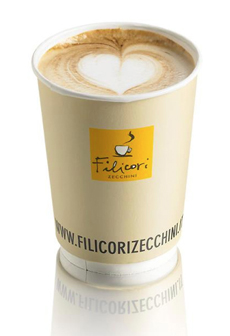TIP OF THE DAY: Decaf Coffee Facts
|
According to the National Coffee Association, 10% of coffee drinkers in the U.S. opt for decaf. Counter Culture Coffee, a coffee house in New York City, reports that 18% of its coffee sales come from decaffeinated coffee.
There are good things about decaf, and less good. First, the good: In addition to avoiding jitters and helping you get to sleep, decaf in general is better for your health*. Here’s some reporting from Diana Villa at Care2.com. It’s not a comprehensive discussion, but we offer it as a starting point to those who wonder if decaf might be better for them. Decaf coffee is good for your liver. In a study of more than 28,000 participants over 10 years, one study found that people who drink at least three cups of coffee a day had lower levels of four liver enzymes often linked to damage and inflammation. |

At least one in 10 Americans opt for decaf. Photo courtesy Filicori Zecchini. |
|
|
In another study, compared with people who drink no coffee, those who drank six cups of regular coffee a day had a 33% lower risk of type 2 diabetes. But those who drank one cup of decaf per day had a 6% reduction in type 2 diabetes risk. Decaf coffee cuts prostate cancer risk. In a study of 47,911 men by the Harvard School of Public Health, researchers found that those who consumed six or more cups of coffee a day—regular or decaf—had an 18% lower risk of developing prostate cancer, and were 60% less likely to die of it. The results suggest that it’s the coffee antioxidants, not the caffeine, that offer the protection. |
||
 Decaffeinated coffee has more benefits than simply avoiding the jitters. Photo courtesy Filicori Zecchini. |
Now for the caveats: Decaf doesn’t mean caffeine-free. According to FDA regulations, coffee must have 97% of the original caffeine removed in order to be labeled as decaffeinated. If you drink five to ten cups of decaf a day, you can still be consuming the caffeine equivalent of a cup or two of regular coffee. While a cup of regular coffee usually contains about 100 mg of caffeine, a 2007 Consumer Reports test of 36 popular brands found some cups of decaf that had more than 20 mg of caffeine. In this study, a cup of decaf from Dunkin’ Donuts had 32 mg of caffeine! According to the American Heart Association, decaffeinated coffee may raise your LDL [bad] cholesterol. Researchers tracked three groups of participants: those who drank three cups of regular coffee a day, those who drank three cups of decaf, and those who drank no coffee. Three months later, the decaf group alone experienced an 8% spike in apolipoprotein B, a component of LDL cholesterol. |
|
|
Not all decaf is created equal. There are different ways to decaffeinate coffee; some use chemical agents. Look for a Swiss Water Process or a brand that uses the CO2 method to decaffeinate. These two are also the only certified-organic methods to decaffeinate. And now, it’s time for our first cup of coffee of the day. We’re going for an espresso, caffeinated. |
||

